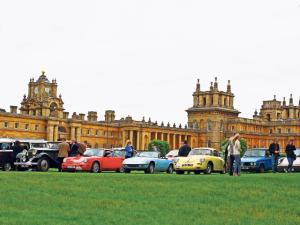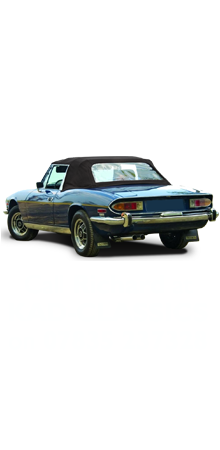The Federation of British Historic Vehicles (FBHVC) has backed calls for a United Nations organisation to give historic vehicles heritage protected status in much the same way that certain buildings and locations are.
 In association with the Fédération Internationale des Véhicules Anciens (FIVA), the European organisation set-up to protect the interest of classic vehicles, the FBHVC is seeking automotive ‘International Non-Governmental Organisation status’ with United Nations Educational, Scientific and Cultural Organization (UNESCO). The proposed plans would afford the protected status to all 30-year-old vehicles and older.
In association with the Fédération Internationale des Véhicules Anciens (FIVA), the European organisation set-up to protect the interest of classic vehicles, the FBHVC is seeking automotive ‘International Non-Governmental Organisation status’ with United Nations Educational, Scientific and Cultural Organization (UNESCO). The proposed plans would afford the protected status to all 30-year-old vehicles and older.
Having world heritage protected listed status means that a subject is deemed of having special, or cultural significance. Under certain circumstances, listed items can obtains funds from the World Heritage Fund.
Geoff Lancaster, communications director of the FBHVC, said: ‘As well as the benefits for the classic car movement, the leisure and tourism industry would receive a lift, as it provides an opportunity to develop the GDP of the UK community.’
The FBHVC’s calls for classic cars to be given a globally-recognisable status builds FIVA’s existing work in drawing up the Turin Charter, which offers up Europe-wide guidance on what qualifies as a historic vehicle. However, FIVA has spoken of its aspiration for a wider-ranging global status for historic vehicles.
David Whale, senior vice-president for FIVA, added: ‘We need to take a holistic approach to this. If we can get UNESCO to fully comprehend what we’re trying to do, it will be positive for the whole movement. If the plans go through we’d hope we could get the same recognition as well established monuments, like historic buildings.’
Not everyone is in favour of the proposed plans, though. Grahame White, HSCC chairman is worried about where that leaves the drivers.
He said: ‘If the protected status were to come in, how would it affect driving the cars? An awful lot of the cars raced at our events are more than 30 years old, and people want to get out and drive their classics, not let them sit in a garage.’
UNESCO offers world heritage status for more than 1000 buildings and sites across the world, including the Tower of London, Canterbury Cathedral and Ironbridge in Shropshire here in the UK. Among the transport-related sites are historic railway lines, like the Albula Railway, which crosses the Landwasser Viaduct in Switzerland.






